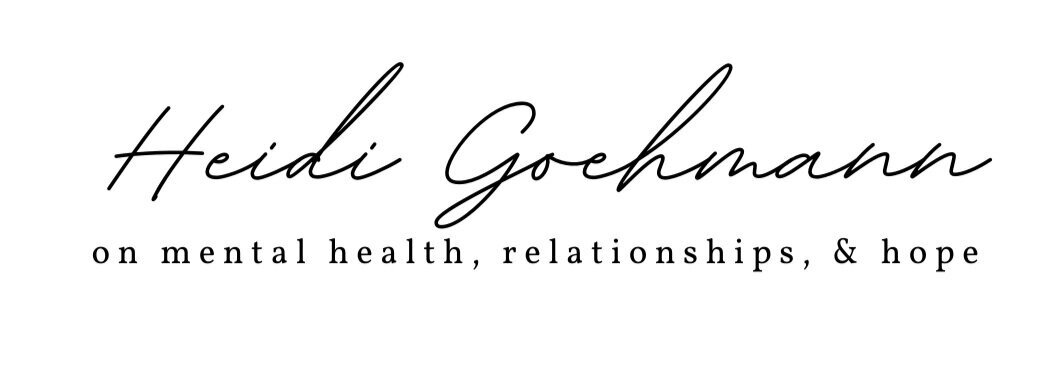Anxiety, Shame, and the Church
The weight of anxiety in this world today is palpable.
Is it any wonder?
We live in a world with so many homes shaken by loss, mounting student and credit card debt, communities necessarily addressing racial tensions, and the constant barrage of should’s and would’s that come with shame and judgement also all around us. Ours is a world with emptier churches and full addiction clinics; a world where terrorism knocks on our front door; a world where politics are louder than concerns for our most vulnerable populations. In this world, the sheer amount of graphic images and social media we take in each day may heighten our internal anxiety meters to red alert all by themselves.
You may not struggle with anxiety yourself, but you see the fruit of it all around you. It seems like a problem with a pretty simple solution- trust. But what if there isn’t a simple answer to anxiety? What if someone trusts in God…and still remains anxious?
It would seem that casting cares isn’t as simple as we’d make it out to be in the church.
When someone is anxious we often share a small half-sentence found in 1 Peter 5:6-7:
Humble yourselves, therefore, under the mighty hand of God so that at the proper time he may exalt you, casting all your anxieties on him, because he cares for you.
While this Scripture, is certainly applicable to anxiety, what if this verse actually perpetuates the problem of anxiety for many anxious Christians and non-Christians?
What if reminding someone to cast their cares actually creates anxiety rather than relieves it?
The problem is not in the Scripture itself, but in our application of the text. Just because a Bible verse says anxiety, doesn’t make it the best verse to share on the topic, for that person, especially at that time.
We may reach out to someone in compassion, but if all we do is share a Bible verse, the unintentional silent undertone of the conversation is:
“pray harder, believe stronger, have more faith.”
Rather, when we look closer at the context of 1 Peter 5:6-7, this verse addressing anxiety is given in the context of community - christian communities, faith-based communities, church communities in particular. Casting care is done in the safety of relationship, not individually, not as a directive, and not as a pat answer, but as an ongoing connection of two souls, bringing the anxiety of brokenness before the Lord together.
Often, I find that Biblical narratives are more helpful in bringing compassion to anxiety, whether our own or someone sitting next to us. Every single one of us in this faith walk stand, every day, as an unnamed father given to us in the book of Mark. We seek healing from the troubles of this world, from its illnesses, from its diseases, from its brokenness. Listen to the juxtaposition of this father of belief and struggle:
Immediately the father of the child cried out and said with tears, “Lord, I believe; help my unbelief!” (Mark 9:24)
Christ Jesus took our sin to the cross, but he also took the weight of all the brokenness around us. His death doesn’t mean that we would never have no trouble, anxiety, fear, or worry, but so that redemption could be ours amidst it all.
God uses even this: anxiety, fear, worry, lack of trust, turmoil, physical and emotional struggles.
Anxiety, like all suffering, can be useful in that it points us to our own need for the Savior. It’s like little alarm bells in our bodies that tell us – You were made for more than this life. Heaven will come one day when all this trouble will be no more and Jesus will restore it all when He comes again.
Shame over our anxiety has no place in the church, within the context of eternal life won, the tomb empty, and hope reigning among us. Allowing the church, the pastor’s office, or a simple conversation over coffee to be a safe place to share the burden decreases the shame of having anxiety for the one struggling. It makes seeking spiritual care, counseling, medication, or any other treatment so much easier and less shaming also.
We were made for casting cares, yes, but deeper than that, we were made for connection – sharing the Word, sharing Hope, being honest with one another about our own struggles, and sharing the grace of Christ in the midst of the mess.
Want to learn more about a no-shame perspective of anxiety, the differences between anxiety, worry, and fear, and find more tools for your anxiety toolbox? Find more resources in our article and podcast series The Truth about Mental Health: Anxiety:


